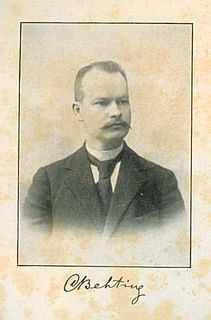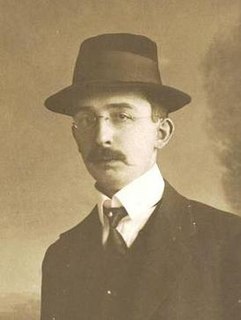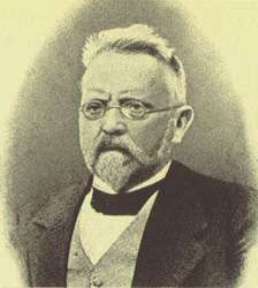Related Research Articles

William Steinitz was an Austrian and later American chess player, and the first official World Chess Champion, from 1886 to 1894. He was also a highly influential writer and chess theoretician.

Carl August Walbrodt was a German chess master.
Adolf Schwarz was an Austro-Hungarian chess master.

Heinrich Wolf was an Austrian journalist and chess master.
Walter John , was a German chess master.

Kārlis Bētiņš was a Latvian chess master and composer of studies.
Theodor von Scheve was a German chess master and writer.

Bernhard Gregory was a Baltic German chess master.
The first Baltic Chess Congress took place in Riga, Latvia, in 1899. The winner was Robert Behting, the elder brother of Kārlis Bētiņš, who won a play-off game with Karl Wilhelm Rosenkrantz. The second Baltic Chess Congress was played in Dorpat, Estonia, in 1901. There were four winners.
Moritz Lewitt was a German chess master.

Johannes Metger was a German chess master.
Karl (Carl) Wilhelm Rosenkrantz was a Russian and Soviet chess master.
Leonīds Dreibergs was a Latvian–American chess master.
Wolfgang Hasenfuss was a Latvian chess master of Baltic German ethnicity.
Otto Wegemund was a German chess master.
Jan (Hansi) Kvicala (Kvíčala) was a Czech chess master.
Sergey Fedorovich Lebedev was a Russian chess master.
Theodor Germann was a Latvian chess master.
Arved Heinrichsen, was a Lithuanian chess master.
Alfrēds Hartmanis was a Latvian chess player who won the Baltic Chess Congress in 1913.